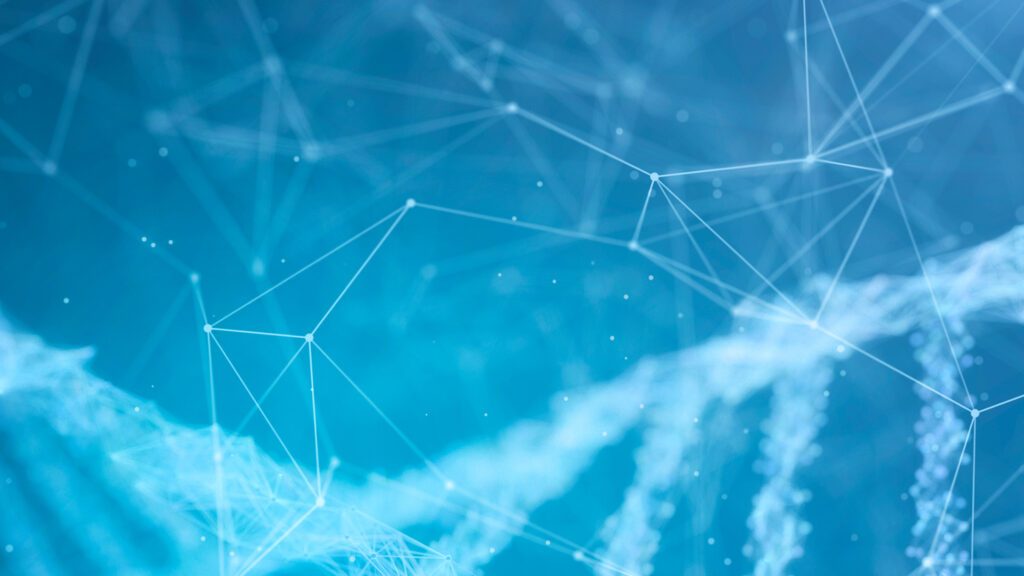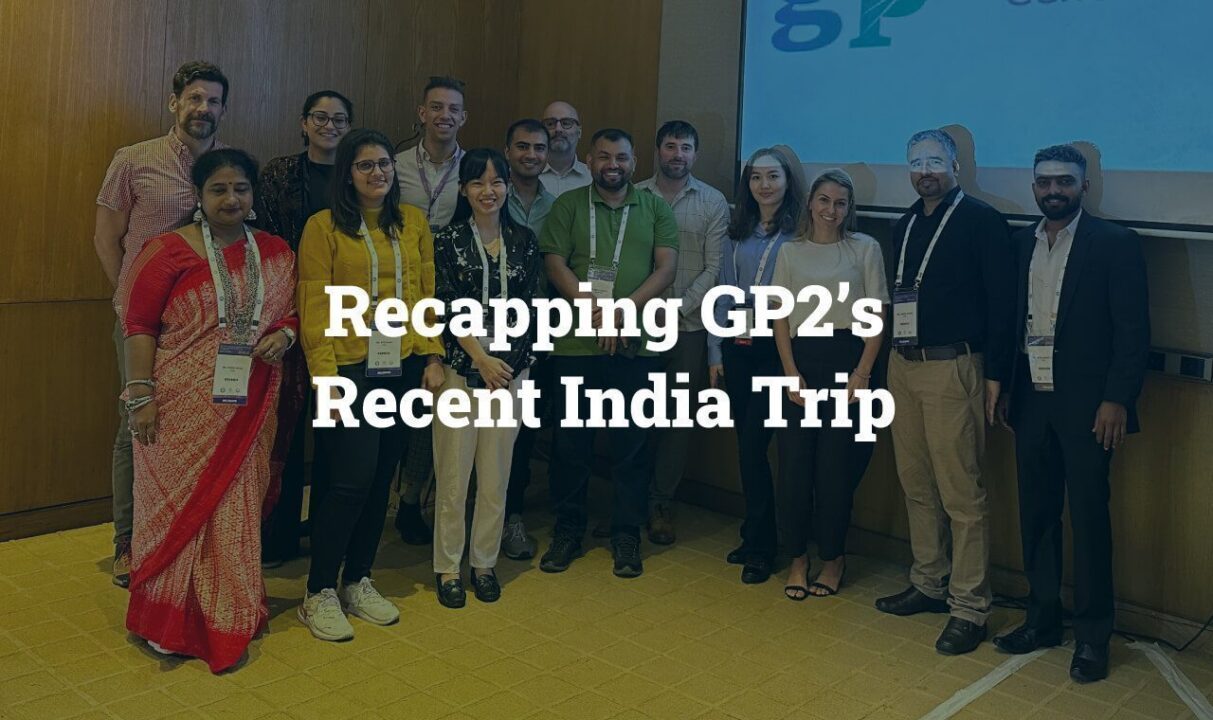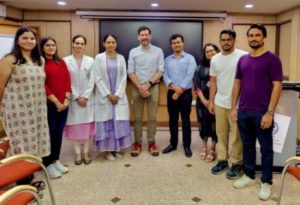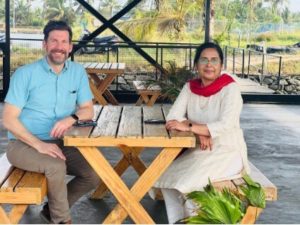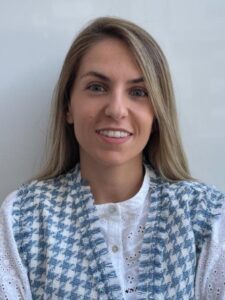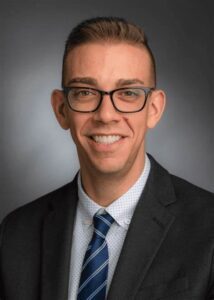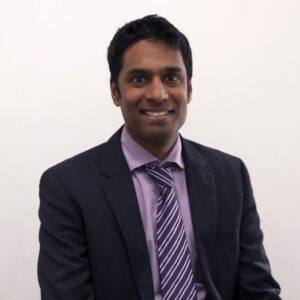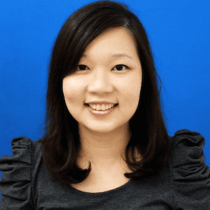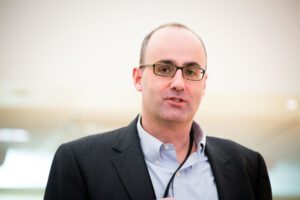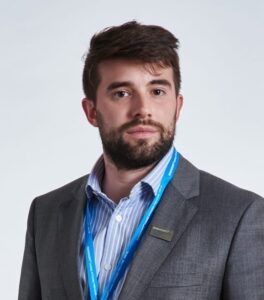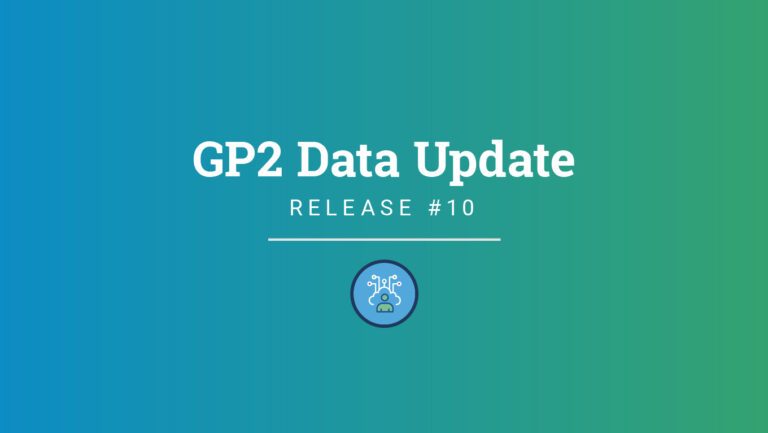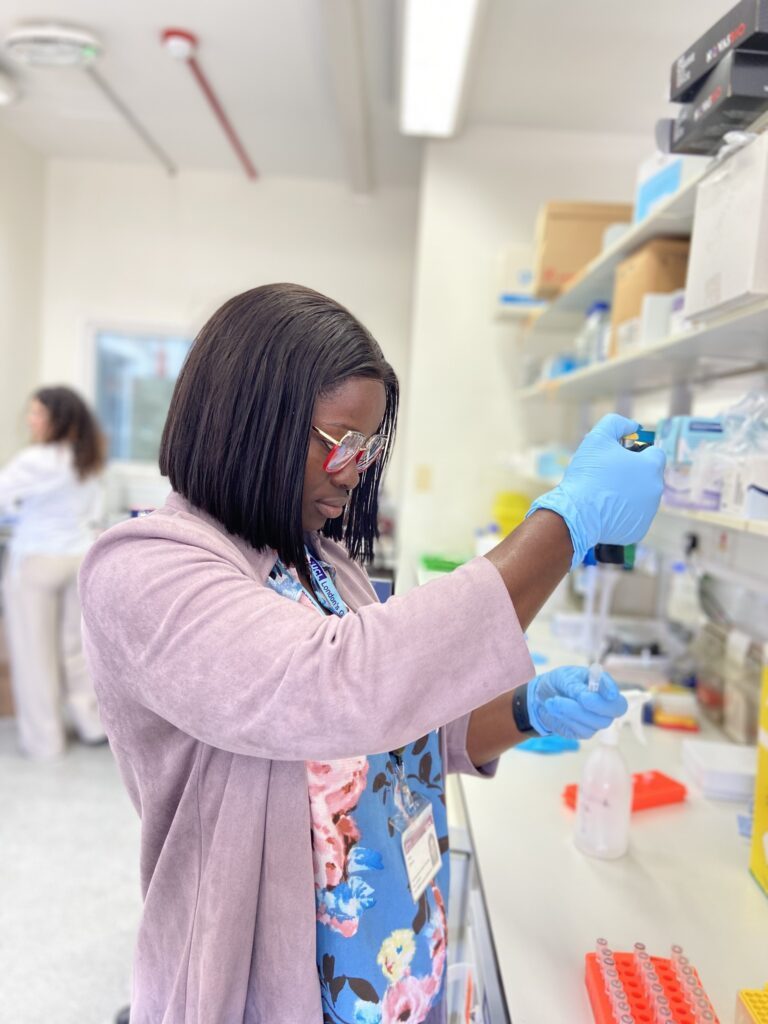GP2 recently visited India where study team members took advantage of the 8th Asian and Oceanian Parkinson’s Disease and Movement Disorders Congress (AOPMC) held in Kolkata, along with a few select site visits, to build more meaningful interactions with GP2 collaborators and trainees from the region. In addition, we delivered our first in-person training workshop in India and met with physicians who came from all across Asia, amongst other exciting interactions we talk about below.
GP2 Bioinformatics Training Workshop
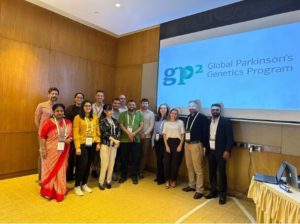
In addition to its important scientific outcomes, a big focus of GP2 is to build research capacity globally for Parkinson’s disease (PD) genetics research. Our goal is to set up training opportunities that will build and expand local capabilities. In support of this goal, 12 clinicians, scientists and researchers from India, Kyrgyzstan, Malaysia and Bangladesh attended a GP2 Bioinformatics Training Workshop held in Kolkata alongside the MDS AOPMC on March 16. This workshop was delivered by Mary Makarious and María Teresa Periñán Tocino.
The event, open to all levels of experience and career stages, provided an overview of GP2’s goals, existing training materials, explored raw and imputed genotype data, as well as clinical data. In addition, the workshop provided investigators the opportunity to gain data analysis skills. They were introduced to the Terra platform, an analysis platform that allows interaction with cloud-managed data such as GP2. Attendees were taught how to access, upload, and manage data as well as run practical, interactive analyses using Jupyter notebooks.
GP2 & LUX-GIANT Luncheon
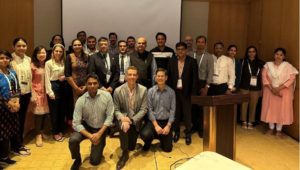
The next day, we hosted a lunch meeting between the LUX-GIANT consortium, led by Manu Sharma and Asha Kishore, and the GP2 team including Alastair Noyce, Huw Morris, Brian Fiske, and Justin Solle. With over 30 attendees from across India, the group got the opportunity to learn about the expansion phase of LUX-GIANT and how GP2 is poised to redefine the underlying biology of the Parkinson’s spectrum in a global context.
GP2 Return of Results Workshop
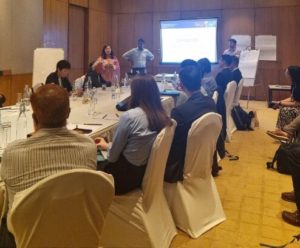
We also organised the GP2 Return of Results Workshop, led by Ai Huey Tan and Kishore Kumar, with approximately 20 attendees from over 10 countries in Asia. We canvassed opinions on return of results (RoR) back to patients, and what we can do to increase recruitment efforts and facilitate discussions in these regions. We discussed the range of existing approaches, from no return of research results to full return of clinically relevant findings, and how each region had different priorities. There was diversity in terms of investigator experience with genetic testing, and accessibility to genetic counsellors and clinically accredited testing. We found that a ‘one-size-fits-all’ approach to RoR may not work and highlight the need to accommodate regional diversity.
GP2 Stand at MDS AOPMC
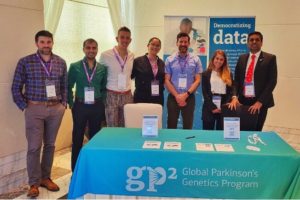
GP2 had a non-profit stand at the MDS AOPMC, March 18-19. We had several meaningful interactions, particularly with clinicians with potential access to samples that could be submitted to GP2 and trainees who were interested in upcoming training opportunities. It was wonderful to meet in person and discuss future plans and the positive impact of our work.
GP2/MJFF Site Visits
The Michael J. Fox Foundation (MJFF) representatives Brian Fiske and Justin Solle made additional trips across India to meet with collaborators of the LUX-GIANT cohort, an initially MJFF-supported effort and now a key partner to GP2. Meeting with Dr. Asha Kishore in Kochi’s Aster MedCity and with Dr. Roopa Rajan and colleagues at All India Institute of Medical Sciences in Delhi, we were able to speak directly with team members, hear more about ongoing research activities and learn about challenges and opportunities our colleagues in India see as we make progress in a shared mission to increase a globally relevant understanding of PD genetics.
Final thoughts
This GP2 visit was a great opportunity to build meaningful interactions with collaborators and trainees from the region. We hope this will contribute to expanding local capacity and cultivating locally-led change to achieve transformational impact in the understanding of PD genetics.
